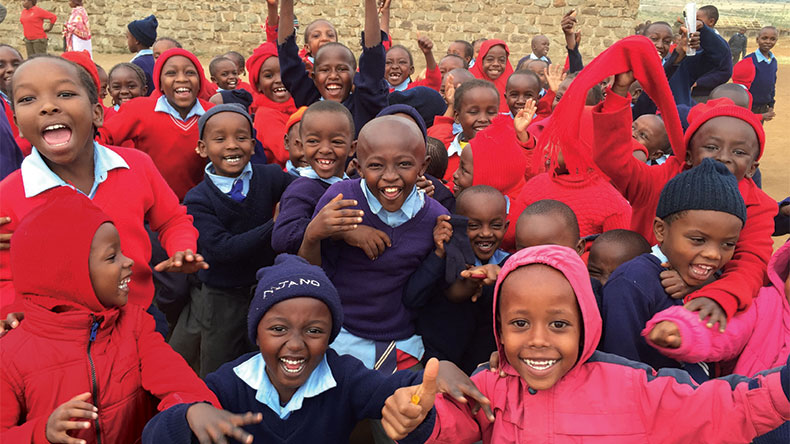Beyond the Comfort Zone

Beyond the Comfort Zone
The Power of Immersion in Unfamiliar Cultures
At William James College, we have long recognized the need for culturally sensitive and competent mental health care for different ethnic groups in our increasingly diverse society. Our new Center for Multicultural and Global Mental Health will focus on preparing the next generation of professionals to provide culturally sensitive services through three areas of focus: Latino Mental Health, Global Mental Health, and African and Caribbean Mental Health.
Gemima St. Louis, PhD, Co-Director of the new Center, explains: “We want to train our students to think and act globally, and to be ready to effectively serve and treat people from different cultures, no matter the setting.”
“Our students will gain hands-on experience, in addition to professional development, clinical training, research, and academic study. They require cultural immersion and service learning to truly grasp what they’re learning—and that’s one of the key components that will set our program apart.”
To that end, St. Louis lists Ecuador, Guyana, Haiti, Guatemala, and Kenya as established or potential locations where students will engage in immersion experiences.
We want to train our students to think and act globally, to prepare them to serve people from cultures around the world…to transition smoothly and competently between settings and cultures. — Gemima St. Louis, PhD, Co-Director, Center for Multicultural and Global Mental Health
Jill Bloom, PhD, Co-Director of the Center, opts for a broad, interdisciplinary view. She explains that mental health is informed by a range of social, political, and economic issues—issues that include stress, disease, cultural context, race, and poverty. The students’ experience for a week in Haiti, “gives them the opportunity to leave old assumptions behind and do the rethinking required to work with, and to understand people in an unfamiliar context. Our students learn that theory absorbed in a classroom doesn’t always translate well.”
“Expect the unexpected,” St. Louis concurs. “They learn to think on their feet, to develop new scripts as needed, and to use powerful tools like music, dance, and art to build a connection—especially when there’s no common language.”
Alison Armour, a third year clinical psychology doctoral student at the College, appreciated “the opportunity to be forced to own our work and how we approached it. They trusted us. They were very empowering.” She describes her experience in a small village in the mountains of Haiti as a chance to “get out of my comfort zone, and to be pushed to see what I’m capable of.” Armour, a former French teacher, says she learned about herself, what she knows, and what she needs to work on—and she would recommend the experience to others without reservation.
For Mari Carmen Bennasar, PsyD, Director of the William James College Latino Mental Health Program—as well as a native of the Dominican Republic, with Spanish and English parents—this work is important on both a personal and professional level.
You have to learn to be comfortable with being uncomfortable. —Alison Armour, 3rd year doctoral student in Clinical Psychology
Bennasar explains that it’s impossible to approach multicultural counseling without considering the context provided by religion, gender, culture, and language: “We teach our students how to learn about the unique characteristics of different cultures, and what both connects and sets them apart.”
One of the profound lessons John Meigs, a third year clinical doctoral student at the College, learned in Haiti this summer was to ask people what kind of help they sought, instead of making assumptions. “You can’t walk in with some pre-conceived notion of what people need.”
Though he was initially concerned a week of immersion wouldn’t be enough time to gather meaningful experience, he learned some powerful lessons about the importance of communication through music and dance and art, and the power of body language. He also gained a greater understanding of himself and his own culture.
“I discovered what we all had in common, instead of focusing on all the differences between us. If you can learn to tolerate the feeling of being out of place, you’ll be better at working with all kinds of people. When you’re in a ‘I don’t know what I’m doing’ situation, you have to make changes to your approach on the fly.”
Ultimately, Meigs felt his trip was a validation of his choice to become a part of the William James College community: “I’d never be satisfied doing the same thing over and over. The Global Mental Health concentration is exactly what I want to do. It’s why I came here.”
- Tags:
- Around Campus
Topics/Tags
Follow William James College
Media Contact
- Katie O'Hare
- Senior Director of Marketing
- katie_ohare@williamjames.edu
- 617-564-9389
